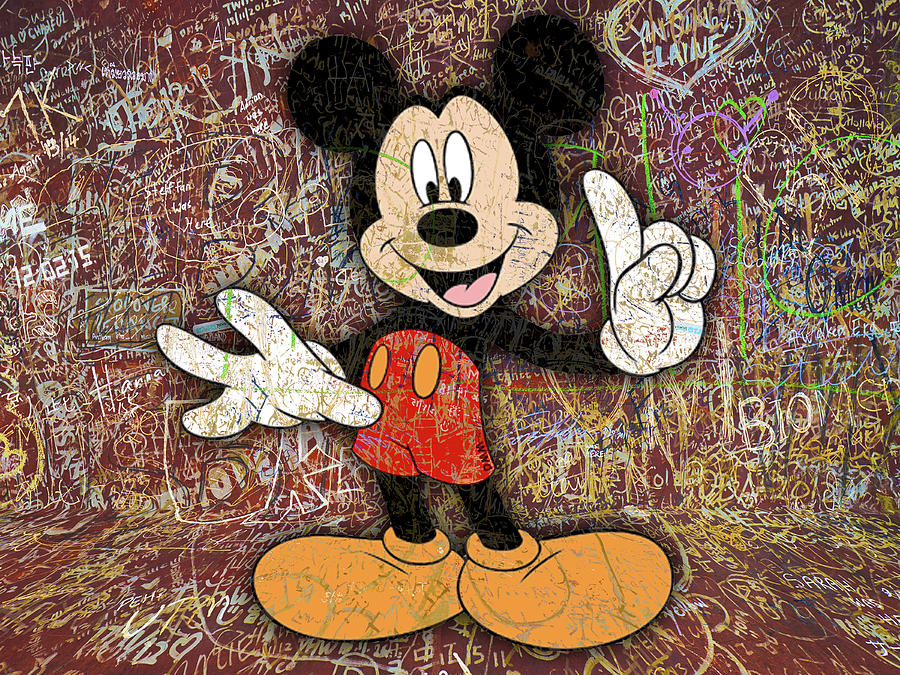Whatever we force is unreal; our forcing is the creation of the unreal and forcing is all we know. As we engage in forcing we automatically narrow down our awareness so that the situation that we are trying to bring about with our forcing seems to be eminently real to us. The situation becomes reified. The two always go together – the forcing and the narrowing of our horizons that comes about as a result of our forcing. And inasmuch as we always are forcing therefore, we are also always creating unreal situations that we cannot see to be unreal. This is our perennial activity.
Forcing is all we know in our everyday lives. It is all we know and it’s all we can know. We don’t have a ‘gear’ for not forcing, we don’t have the ‘muscle’ for it. We are all about succeeding (that ultimate badge of honour) and succeeding simply means that we have been able to effectively force things to be the way that we want them to be. Even when we aren’t able to effectively force things to be what we want them to be we’re still forcing however – we’re ‘forcing unsuccessfully’, that’s all, and so instead of honey-sweet gratification we get to taste the bitterness of frustration and despair. When we are in ‘Forcing Mode’ we are therefore continuously oscillating between the two states. Either it’s hollow gratification that we’re experiencing or it is an equally hollow sense of failure.
The gratification we feel is hollow because we’re achieving an unreal thing and the frustration and despair is hollow for the very same reason – we’re feeling as bad as we do because we are failing to obtain an unreal thing! ‘Oh great’, I say, ‘I’ve achieved an unreal thing – how about that!’ or, ‘Oh damn! How terrible – I have failed to attain the unreal thing and so now I am a loser…’ The fact that we are forcing so hard however means that our vision has been narrowed so much that we never actually see this – all we know is an intense desire to obtain the attractive projection and equally intense fear with relation to the aversive one. Desire and fear are the only things that are real to us. Forcing (or controlling) is thus a trap because it creates the need for us to keep on forcing keep on controlling.
We could say that forcing things narrows our perspective so that what we are trying to force them to be (i.e. ‘the goal’) seems as if it’s a real thing (or contrariwise ,so that what we are fleeing from – as opposed to chasing – seems to be worth running away from) or we could just as well so that acting on the compulsion intensifies the compulsion so that not acting on it becomes ever more difficult, ever more impossible. The more you chase the more you have to chase and the more you flee the more you have to flee, in other words. Our controlling is creating the compulsive polarity that we are trapped in and it is also necessitated by it. Striving after a goal creates the goal, and it creates the need to keep on striving. Goals equal striving and nothing else, anything else (such as ‘winning’) is an illusion…
This is the situation that we create when we go down the road of controlling therefore; we trap ourselves in a closed loop of forcing – forcing that leads only on to more forcing, aggression that only ever necessitates the need for more aggression. We spin around and around in this loop and there’s never any end to our spinning because we’re chasing an unreal thing. We’re chasing ‘victory’ and what this (secretly) means is ‘freedom from the terrible Wheel that we’re caught on’. ‘Success’ secretly symbolizes ‘freedom from the onerous futile burden that we are never allowed to put down’. This is what James Carse calls ‘the contradictoriness of finite play’ – we’re playing to end the play, we’re playing the finite game in order to bring that game to an end and yet it is playing the game that creates the gang, perpetuates the game.
There’s absolutely no freedom in this situation, absolutely no genuine volition, and yet that’s not how we experience it. We experience huge potential freedom in it, just as we experience ourselves as being fully volitional beings. We are compelled by the illusion to believe that we are free. If a little bit of freedom did by chance come into the picture then we wouldn’t like it; we wouldn’t like it because that would show us the true extent of our delusion. We might consider what sort of situation would prevail if all our forcing was stopped, if there was no more forcing, and this is a very interesting question. It’s the most interesting question anyone could ever pose, and it hasn’t got an answer!
‘Forcing’ is how we get all our answers after all, and this is another way of saying that all of our answers are false. Unless we force reality to fit in with our assumptions for it there are no ‘answers’; unless we squeeze everything into our abstract boxes there is no certainty. It’s only by cheating that we create the illusion of positive knowledge therefore – we narrow our viewpoint and then say we didn’t. We can only operate as the purposeful self within this artificial environment and this is why we say that the self can never not control or never not force – if the purposeful self can only exist within the artificial environment that is created by us narrowing our horizons without admitting that this is what we’re doing then how can the so the sense of identity that is being produced in by this forcing ever have ‘not forcing’ in it’s repertoire? The Purposeful Self is a creature of illusion, and the illusion it exists within has been created by its own unacknowledged forcing, its own unconscious controlling…







Alain
I tend to agree with you, forcing is what we seem to be doing. Similar to a collapse, ‘the collapse of the wave function’, of all the possibilities, one possibility or expression/solution/answer comes out of this collapse, thus becoming the clear and the distinct, ‘I clearly and distinctively see it, therefore it is real’, by forcing those to become clear and distinct. But there is also ‘power’ within this forcing or focusing as it allows us to act, as it becomes an orienting center. Granted it is ‘illusory’, in fact no doubt about that, but this/those illusions are/can sometimes be functional illusions which may or may not have some validity and value in relation to a particular context.
What would be a non-reified situation or context for that matter? Fundamentally there are no situations or contexts, and even less any ‘i/me/them/us’ within any of those non-existent situations. In the same way what would be a real situation, since we seem to be constantly creating/generating unreal situation, that to some extent we cannot seem to see as unreal? And then how would/could you function in the world? We do not wake up away from dreams, but to the fact of dreams.
What we know, as we know it, I agree with you, is ‘always’ reified, the ‘result’ of reification processes, I call this consciousness or focalize awareness (awareness of), but this reified awareness isn’t the only mode of awareness, there are plenty of other modes. Awareness as or being, being one of them. Problem is that we imagine this reified awareness as being the only awareness there is, and therefore tend to accept ‘only’ that which has been previously process by this same awareness; we only ‘accept’ reified ‘results. Even if let us say we were to seek other modes, well, we would tend to do so with this same awareness seeking clear and distinct ‘something’, things, reified results. This reified awareness tends to bound everything, in fact what are contexts and situations, if not imposing limits or boundaries in order to be able to make some sense, meaning? Contexts, situations are also processes, consisting mostly in eliminating whatever is consider/imagine non-essential and thereafter attempting at creating a more or less coherent whole with whatever parts/elements is left. If you are involve in an car accident and the police officer is asking you what is the situation here, you are not going to talk about your yesterday morning breakfast with you mother in law, you are going to eliminate all non-essentials elements from your story, erect limits or boundaries around this story so that it can appear as complete and coherent as possible, how this element relates to that other element and to the whole, ect..
An idea just came to my mind; what if forcing/focusing was in fact ‘resistance’/a movement away from? And what would be the ‘thing’ we tend to resist so much? Well, I would think that this thing would be truth/reality. And why is that? Because truth/reality means the end of me/I as this person/personal/personality(ies). Truth is calling us home, the nagging, the insatisfaction, the ‘having the blues’, is truth calling us home, or one could say that it is a constant reminder of who we are. Most of our efforts are effort of resistance in fact, in regard to this home calling.
The oscillation you seem to refer to; ‘gratification/failure’ has to do with an implicit claim that we make; That I am unique, great, distinct, important, separated. And as we seem to be on the winning side, we feel gratification and if not we feel it as a failure/humiliation. We tend to fight inch by inch in order to maintain that claim; that I am the greatest of all, the real and only shining white star on the top of the Christmas tree in the midst of all the confusion and contradiction which is going on in my mind/world. We are humiliated/feel the failure when attack on our own sense of greatness, that we are unique, important/special, distinct, separated/disconnected one from another and the world.
We kind of perpetually play a game with others and also with ourselves, the game that consist in affirming and perpetually claiming that we are ‘great’ beings (individually and/or collectively), that we are quite unique, special, important, that I made it/can make it to the top, that my nation is the greatest, etc. This claim sometimes can take oversized/overinflated proportion; one simply has to think about Trump, Hitler, Putin or collectively as the USA, China, Russia, or the chosen people of Israel, etc… Those oversize/overinflated claims, sometimes becomes so evident that they become an obvious quite laughable (but that can become dangerously destructive) caricature. One could ask, a caricature of who? For example; Trump is a laughable caricature, but of who, he is not a caricature of himself but a caricature (an exaggerated and distorted image) of all of us without exception, and that is the reason why so many loves him and so many hates him, we love him and identify with him as it tends to affirm our own claim of greatness as this and that. We hate him because of his public indecency of showing us what we usually tend to keep for ourselves.
We tend to be more discrete and cautious when claiming our ‘greatness’, and we do so in order to avoid being crush down or downplayed. This crushing someone down, being showed for what we really are; ‘nothing special’ which can take many forms such as you are a no-good for nothing, weak, a clown, a liar, inferior beings, etc. is not at first sight so horrifying to us, but it is, as it triggers humiliation and resentments in our hearts. Resentment is very toxic, it can take a whole life time to heal, and we, yes we, are the first victims of our own resentment, and it is all ego stuff. Resentment is an attitude we have towards, resentment is also something which we can educate people in ‘adopting’ as the right ‘view’ and or attitude towards. And as such resentment can be an individual “affair’ as much as it can be culturally induced. Resentment is also a ‘holding back’, we hold back until the ‘right’ time comes. We go into the battlefield with a vengeance in our hearts in order to heal our hearts. That is to regain/win back our rightly due sense of greatness.
By claiming my own ‘personal’ (or collective) greatness, I claim that I am distinct, separated, and independent. And to complicate matters a little more, that claim isn’t entirely a false claim, for I am not separated from this truth and consequently from this greatness itself and of complete freedom as well. It kind of resonates within the ‘person/personal/personality’, but the problem is that we tend to interpret this greatness as the ‘person/personal/personality’. That is where we have it wrong, dead wrong. With the consequences that we now see.
The Muslims chants daily something that echoes what I am trying to say, but I do not think many of those who say those words understand the extent of what it conveys. They chants ‘God is great, God is alone and without anyone besides him’. And as one chants this, without considering the full consequences of what this means, one tends to think that it means there is no two gods, only one, but it says something much more than just that, it clearly says ‘without anyone besides me’, which mean that If you think you are as this/a person/personality and that there is god on the other ‘side’, it makes one plus one=two. You and god, or you beside god, or you as you relate with god, which still means a you and a god. There isn’t a ‘you’ great person/personality and a great Allah, there is only Allah or god, with no-one (no you) beside him. What this says is that there is greatness in/as this world and that it is one, but you must ‘submit’, in the sense that you must let go of your own personal claim to be equally important, special, great as god/world. This wound we all have, is a call, the call of ‘god/world’ asking for you/person/personality to let go of this claim that you are uniquely, distinctively great, only god is, and you are not even beside him or close to him, never was, for only he is.